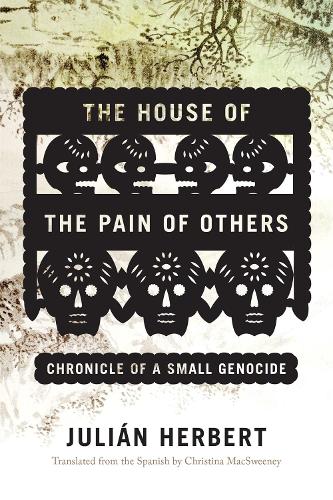
The House of the Pain of Others: Chronicle of a Small Genocide
(Paperback)
Publishing Details
The House of the Pain of Others: Chronicle of a Small Genocide
By (Author) Julin Herbert
Graywolf Press,U.S.
Graywolf Press,U.S.
16th April 2019
United States
Classifications
General
Non Fiction
304.66309720904
Physical Properties
Paperback
304
Width 140mm, Height 210mm
Description
Early in the twentieth century, amid the myths of progress and modernity that underpinned Mexico's ruling party, some three hundred Chinese immigrants-close to half of the Cantonese residents of the newly founded city of Torren-were massacred over the course of three days. It is considered the largest slaughter of Chinese people in the history of the Americas, an attempted extermination that was followed by denial or empty statements of regret. The massacre reverberated briefly before fading from collective memory. More than a century later, the facts continue to be elusive, mistaken, and repressed. "And what do you know about the Chinese people who were killed here" Julin Herbert asks anyone who will listen. An exorcism of persistent and discomfiting ghosts, The House of the Pain of Others attempts a reckoning with the 1911 massacre. Blending reportage, personal reflection, essay, and academic treatise, Herbert talks to taxi drivers and historians, travels to the scene of the crime, and digs deep into archives that contain conflicting testimony. Looping, digressive, and cinematic, this crnica vividly portrays the historical context as well as the lives of the perpetrators and victims of the "small genocide." It is a distinctly twenty-first-century sort of Western, a tremendous literary performance that extends and enlarges the accomplishments of a significant international writer.
Reviews
"The great strength of Herbert's book, written with such shame and fury, is that it is not framed as epitaph but as dispatch from a live crime scene, attentive to the silences, the still seething resentments, relinquishing nothing to history."--The New York Times
"A stunning account of the ways in which xenophobia and ignorance fuel violence. . . . With poetic reportage, Herbert conjures the reality of blood in the soil everywhere and the need for vigilance against nationalism."--Literary Hub
"[The House of the Pain of Others] is both vivid and enthusiastically researched, examining each piece of available evidence to establish what must have happened at every stage and how it was obscured, then and later."--Harper's
"If The House of the Pain of Others is a work of history, then, it's a self-aware one, more crnica than objective report. The narrative is filtered through Herbert's distinct sensibility, one that reveals how stories of the past are actually written--subjectively, provisionally, influenced by the sheer randomness of experience."--Bookforum
"Herbert understands rhetoric's power and uses it to expose a century-old atrocity. . . . A century passes. The world turns. Herbert reaches out with history and art, beseeching us to not let these crimes go unheeded."--Paste
"The House of the Pain of Others is partially about how the past haunts the present, especially if the root issues go unaddressed. The book is about Mexico, and Torren, but its lessons are not limited to those localities. Herbert claims that 'this is not the story you were expecting, ' but in many ways it is achingly familiar."--Shelf Awareness
"The strengths of Herbert's writing are patent throughout: his vast, comprehensive research; his often elegant phrases and sentences . . .; his empathy; and his determination to be accurate and fair. . . . A grim, complex and admonitory account of a deeply racist episode that many would rather forget--or ignore."--Kirkus Reviews
"With exhaustive zeal, Herbert interviews descendants, archivists, officials, and conducts impromptu 'what-do-you-know' conversations with Torren cab drivers. He compiles several-century histories of China, the U.S., and Mexico. He investigates Sinophobia across the North American continent. . . . Award-winning translator MacSweeney enables anglophone readers access to Herbert's electrifying testimony."--Booklist
"The House of the Pain of Others is a meticulous exploration into the way we learn to hate--and the oblivion we co-create to mask our complicity and shame."--Anna Badkhen
Author Bio
Julin Herbert was born in Acapulco in 1971. He is a writer, musician, and teacher, and is the author of Tomb Song as well as several volumes of poetry and two story collections. He lives in Saltillo, Mexico. Christina MacSweeney was awarded the 2016 Valle Incln Translation Prize for her translations of Valeria Luiselli's The Story of My Teeth. Her translation of Daniel Saldaa Pars's novel Among Strange Victims was shortlisted for the 2017 Best Translated Book Award.
